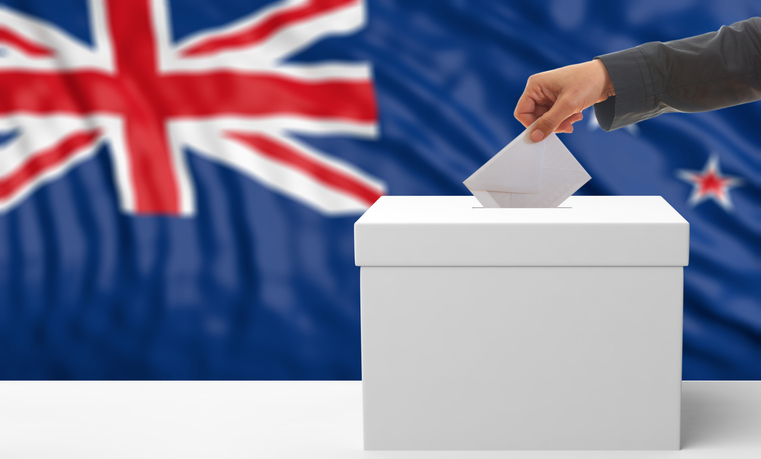Do we need to change the way politics is funded?
Political parties are funded through membership subscriptions and donations with donations forming the dominant funding source. While the persons or businesses contributing large donations are required by law to be publicly identified, recent history shows there are mechanisms available that allow this requirement to be circumvented.
The potential for sizeable donations to enable some parties greater access to our politicians or exercise undue influence over our political process is a real risk.
The reliance on donations to fund politics can also be inherently more favourable to those parties generally considered to be more pro-business and preservation of the status quo. The reliance on donations to fund political activity may also have the effect of skewing policy development towards areas that are likely to generate donations rather than the development of policies that benefit the wider economy and society.
Some form of public funding mechanism of the political process creates opportunity for enhanced voter involvement and the opportunity for voters to effectively control the democratic process.
Financing politics
- Should political parties be entirely publicly funded?
Public funding options
The establishment of a purely publicly funded political process, if imaginatively constructed, has a range of substantial benefits beyond simply removing the risk of donors buying influence. Parliament could set an annual budget for the aggregate cost of funding the nation’s political processes. This budget could be apportioned on the basis of votes gained by each registered political party however democracy might be much enhanced if the allocation was undertaken on an annual basis by the nation’s voters. The voters after all are the community the parties are meant to be representing and acting on behalf of and by having an annual voter allocation of funds to political parties the voters are purchasing a service from the elected members.
Under this funding model registered voters are each able to allocate a share of the public funding each year to one or more registered political parties – effectively this is a pay as you go process for politics – this has a number of benefits, the most important is that it provides voters with what would in effect be an annual review of the various political parties performance and policies. This would greatly empower voters and substantially enhance voter engagement in our democratic processes. The funding would not need to be allocated on the basis of sitting members of parliament but would be able to be allocated to any registered political party.
Having voter control of political party finances is the most direct way of maintaining democratic control of political parties – a longer parliamentary term could be managed effectively with such a direct feedback mechanism.
The other benefit is that such a mechanism would do much to increase public engagement with the processes of democracy.
It is probable that because not all registered voters would participate in this allocation process the funding would need to be allocated on proportionate basis.
The taxpayer funded component could be augmented by a membership fee that is prescribed to be standard across all political parties and that parties may not derive either direct or indirect funding from any other source.
Feel free to Vote below and / or go to the next question – Do we need more MPs?
-
Yes+ 88%, 15 votes15 votes 88%15 votes - 88% of all votes
-
Neutral 12%, 2 votes2 votes 12%2 votes - 12% of all votes
-
Yes- 0%, 0 votes0 votes0 votes - 0% of all votes
-
No- 0%, 0 votes0 votes0 votes - 0% of all votes
-
No+ 0%, 0 votes0 votes0 votes - 0% of all votes
Each question is seeking a response on a range through “yes+” “yes-“ “neutral” “no-“ “no+” where the plus indicates strong support minus indicates mild support.
4 Comments
Submit a Comment
Join Us in the Journey

Get Involved
- Vote & / or comment) on key questions.
- Subscribe to the mailing list.
- Read the blog posts & comment
- Improve local body systems
- Sign the petition. We are reviewing the best options to make this online. TBA

As an alternative to wealthy donor funded marketing of political candidates, the government could provide all candidates for political office (whether nominated by a Citizen Advisory Group (CAG) or a political party) with well-publicized IDENTICAL communication channels to their electorate. I suggest these be limited to a government funded website for every electorate with an identical format (and fact-checked) page for every candidate to express their views, along with equal speaking opportunities at venues throughout the electorate (say at community halls).
Candidates for political office and elected representatives should be prohibited from using social media, as this medium clearly leads to inflammatory and superficial communications. The objective should be to provide all candidates and elected representatives with an equal opportunity to carefully express their opinions while limiting the effects of wealth and marketing hype.
I agree with those ideas, Cliff. We want simple, factual communications, not emotional messages carefully crafted by ‘spin doctors’. It would also be a relief to have civil discourse.
Oh my gosh, yes. And am not averse to the public funding notion either, could well be the safest way. The way in which things are done now means that money can effectively put a new government into power and I think it did so in 2023. Which is appalling.
We don’t need to go all in on public funding. What we can do though is provide a system where you are either public in your support or truly anonymous. I would suggest no limit on donations but all donations to be publicly notified on a central repository as received (practically say within 2 weeks). The only option for an anonymous donation would be to lodge it diectly with the electoral commission saying who it was for and they would pass the funds on with no identifying characteristics say monthly with these totals publicly notified. They would not even give info on how many donations there are at an individual recipient level but they could release summary info on numbers, averages, aonymised sources etc.
So you either do it in the open or the recipient is truly in the dark as to where it came from.
I’d also only allow donations from registered voters or entities which are majority NZ owned and are registered for tax in NZ.